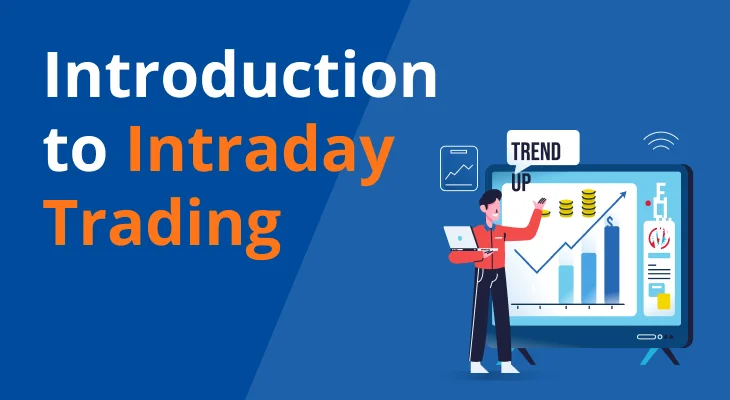As the word ‘intraday’ suggests, intraday trading means trading in the stock market within one trading day. This is the reason why, in intraday trading, any trader must keep track of intraday timing.
If you are a trader who wishes to trade in the Indian stock market and are aiming for short-term profits after you open a trading account, you can use the method of intraday trading. This method of conducting trading activity is also known as day trading.
Understanding Intraday Trading
Various kinds of investors and traders wish to make profits from share market trading activities. Traders are those individuals who are likely to opt for short-term profits, but this is not sacrosanct. Nonetheless, an intraday trader will be aware of intraday timing.
This is essential if they wish to close their trades within a single trading day and gain returns from these brief trades. The crux of intraday trading is to close trading activity within a single trading day and to make some profits in the bargain.
More About Intraday Trading
An intraday trader, also called a day trader, uses certain methods to trade in securities like stocks and ETFs during regular financial market business hours.
They aim to achieve profits from this type of trading at the end of the day, or within market hours. Before learning how to trade intraday styles, it is important to learn some aspects of this unique method of trading.
In intraday trading, the highs and lows of any asset’s price are a consideration, that is, how high or how low the price for a particular stock has reached, for instance.
Intraday price shifts are specifically relevant to day traders or short-term traders who seek to make multiple trades in the course of a single trading session. These traders will settle all their trading positions, whether profitable or not before the market closes for the day.
Intraday Trading – Methods and Means
While paying close attention to intraday timing of price fluctuations, intraday traders or day traders focus on ‘new intraday trading highs’. The same could be said for new intraday lows.
This simply means that a security may have reached a new high price or a new low price compared to all other prices in a single trading session. In some circumstances, an intraday high may be equal to the closing price.
Traders use real-time charts to trace price shifts and this is how they attempt to take advantage of short-term fluctuations in prices. A common method of knowing how to trade intraday stocks is to use the scalping method.
Scalping is a strategy that is used by intraday traders – in this strategy, traders transact multiple trades in a day, intending to profit from minor shifts in a security’s (stock’s) price. Other methods that are used by intraday traders are news-based trading, range trading, and high-frequency trading.
The Importance of Intraday Trading
Day trading or intraday trading involves a key focus on the intraday timing of stock prices. With this in mind, you may have gauged that intraday trading is important for traders who wish to make short-term lucrative trades. The importance of intraday trading lies in its potential benefits. These are mentioned below:
-
Prevent Overnight Risk
While using intraday trading methods, traders avoid the risk of price fluctuations that may affect their positions due to overnight news or any off-trading-hour broker moves.
-
Protection of Positions
Since intraday trading is conducted in a limited timeframe, traders must place tight stop-loss orders (the practice of raising a stop price to mitigate losses from a long position) which tend to protect their positions and curb losses.
-
More Leverage
As traders scrutinise any price fluctuations in the market in a single day, this can be used to know about volatility in prices and gives regular traders some leverage in their trading.
-
Practice Leads to Perfection
Day traders make multiple trades in a day and try to leverage their positions according to the intraday timing of stock price shifts. This means that they have more access to trading frequently and can learn from any mistakes they make. Intraday trading, in a way, is a hands-on learning practice.
The Relevance of Intraday Trading
Intraday trading is trading that is conducted in a single trading day, that is, trades are opened and closed within trading business hours.
The aim is to make short-term profits through multiple trades. Although this may be an appealing way to make quick earnings, trading must be done with your risk profile and goals in mind.

